I watch maths channels on the internet. Why? I’m not sure. If I knew myself better I’d be able to answer that. I didn’t do well at school maths. Halfway through high school I dropped to intermediate level and humanities began to fill the void that science and maths used to occupy.
Literature, philosophy and history took centre stage in the mess of my mind. If I was to advocate for one of these today (a tough choice) it would be history. Combined with critical thinking, we find that much that motivates human action is rooted in past behaviour – suspicion of the other, lust for power and dominance. Humanity finds itself in a pickle now precisely because we refuse to acknowledge and learn from our mistakes. The way of the jungle yet prevails!
But this post is about maths. I rediscovered the beauty of numbers recently during the hard times, with COVID closing the borders of world economies and tightening the job market. Maths does not discriminate. Whatever your race, gender or belief system, math does not care. Maths doesn’t give a toss whether you call it math or maths. Its foundations are axioms, many of which have their basis in geometry and have been accepted as irrefutable, from Greece to India and China, for thousands of years.
It is from these axioms that modern maths extends its reach towards the infinite, towards the irrational and even the imaginary. Physics appropriates many of the logical pathways opened by mathematics and introduces constants to make theory fit observation. Reality is not as tidy and beautiful as mathematicians would always like it to be.
Perhaps I need stimulating. Maybe, as a pianist, I like the elegance of mathematical logic. Or perhaps I just want to feel a little less stupid.
So without further adieu, here are some maths channels to keep minds in need of expansion…Expanding:
3Blue1Brown
The 20 minute video on Some Light Quantum Mechanics by 3Blue1Brown took me an hour to watch. A lot is covered and you will get more out of it if you pause and reflect, rewind and repeat. The elaborations to the equations are illustrated by two and three dimensional animations because quantum equations describing a particle’s probable position require x, y and z planes. Grant Sanderson, formerly of Khan Academy, does these animations in Python, often using a framework created by himself. In the spirit of collaboration, Sanderson often appears on other channels and you might find other YouTubers guest starring here, like minutephysics.
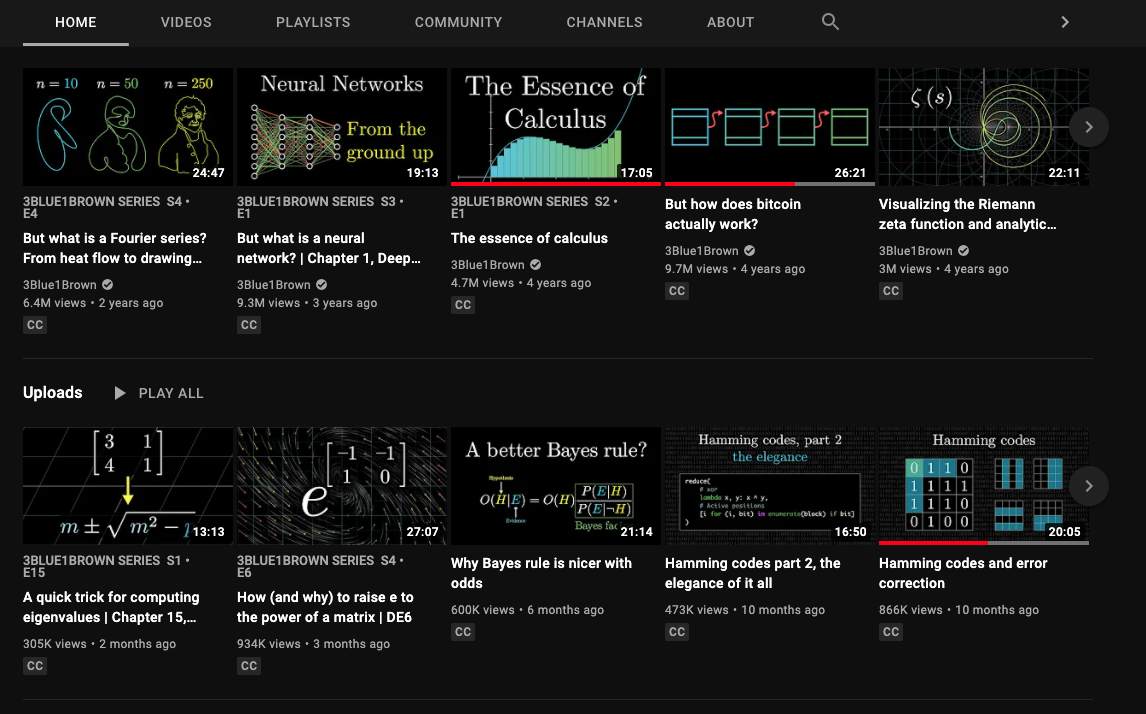
In case you’re wondering, the channel derives its name from its host’s rare eye condition. 3Blue1Brown tends towards intermediate level and there’s no shortage of advanced content. Sanderson has a way of sucking you in early, before exploring introduced concepts in greater depth later, with entire series of videos for example, on calculus.
Mathologer
Melbourne-based Burkard Polster has been creating Mathologer videos for more than five years, describing it “as a one man labour of love.” He does acknowledge that as his channel has gained in popularity, he is now ably assisted by another professor, Marty Ross.
I’m not sure who a Mathologer is but it’s either him or his many viewers (700K+ subscribers). Prepare to be astounded as he unravels elegant patterns in numbers, revealing surprising relations that will advance your intuition and logical thinking. Burkard explains profound relations cleanly with cheeky doses of humour courtesy of nerd references to the likes of Darth Vader and Homer Simpson.
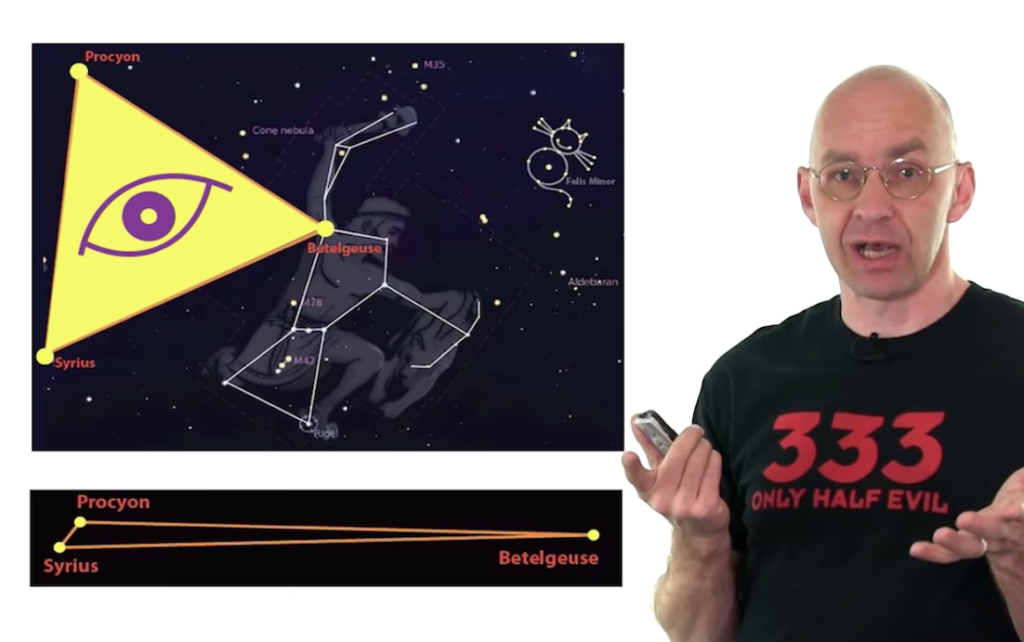
In one video he takes you inside the mind of the great Srinivas Ramanujan, explaining Ramanujan’s solution to the Strand Puzzle using continuous fractions. Mind = boggled. Burkard also provides other elegant solutions that he claims are even better! You will find your brain challenged by infinite and convergent series, seemingly impossible balanced towers of blocks, and puzzles that thwarted most sane mathematicians for centuries. Often, it is the less obvious intuition that is the correct one.
Michael van Biezen
An encyclopaedia of high school maths instruction, a cornucopia of physics lectures, abundance of chemistry tutorials. Michael Van Biezen explains all fundamental concepts of maths and science with worked examples. His videos seem to be edited recordings of classes/tutorials, but the presentation is seamless: you feel like part of the class. Wish I was there, but I’m just lying in bed watching TV.
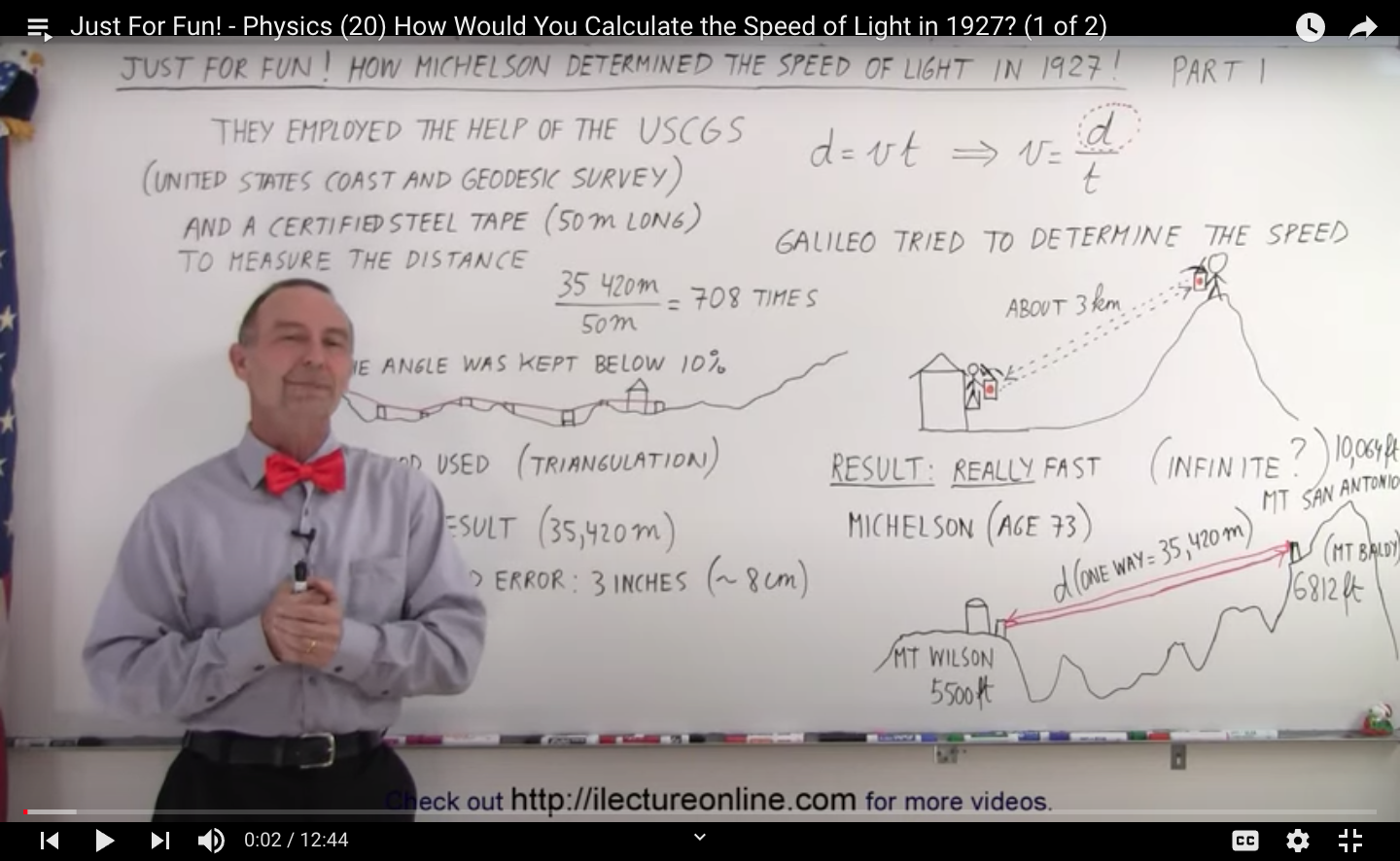
Michel van Biezen is great at explaining things step by step. The bowtie radiates brilliance too. He is the teacher that, had I received instruction from him, I would have been less intimidated by maths at school. My mind doesn’t easily grasp first principles. At school we cover many and are expected to understand them prima facie. Now you have the chance to mull over them.
Zach Star
From his home computer, Zach imparts his wisdom of higher mathematics. Maths and physics are inextricably linked, so many of the conundrums relate to the world of physics. Insights and examples are edited into tight episodes 20 to 30 minutes in length.
The density of information in the videos means it’s no harm to pause and take stock of what you’ve learnt. Take the application of Euler’s number, or e: it appears in so many diverse areas. First, of course, as a formula expressing compounding interest as you may have learnt at school, but also appearing in probability calculations.
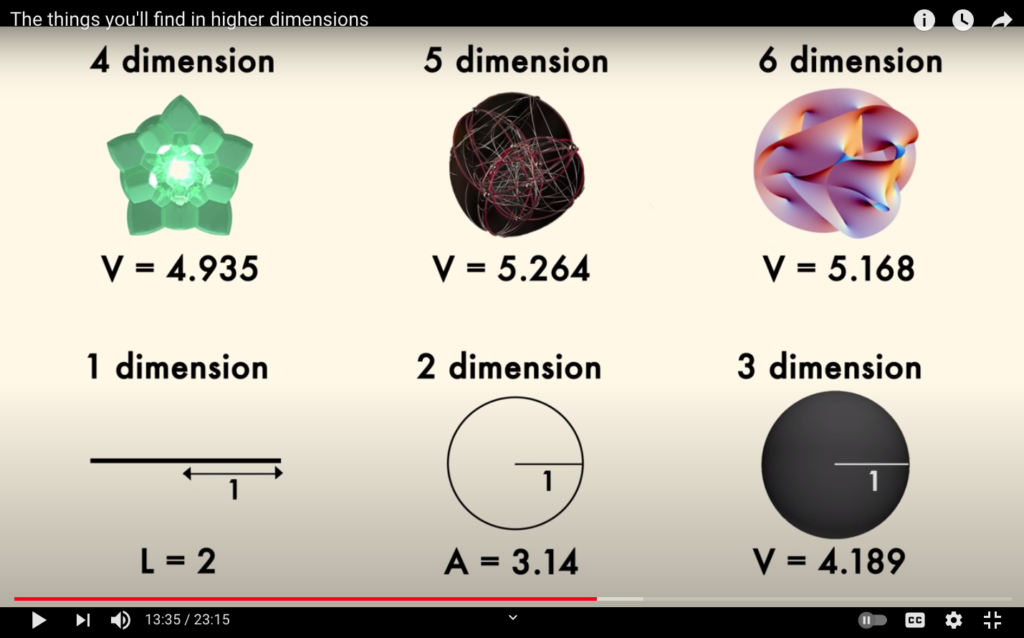
In one video our affable host pokes fun at the humanities, not in a bad way. But it unleashed a wave of belittlement in the YouTube comments towards us arty farty types. To which I say: scientists and mathematicians, who both destroy and enlighten us with your bombs and medicines – some should leave the lab and drop the notepad – Become politicians, public speakers and activists! The world is entering a Fermi Paradox stage and we need more measured leadership and an educated populace to wind us in from excess consumption. Zach Star’s channel is certainly helping with the latter, education, which is an important step. Will technology bring us together or blow us apart?
Zach sources his material from other animators on the web and produces his own Python animations. Like other producers here, the editing and presentation is simple yet first class. Despite meticulous research and preparation, it still feels like Zach’s just hanging out talking to you.
Eddie Woo
No list of maths channels would be complete without Aussie Eddie Woo. World leading mathematician and child prodigy Terence Tao’s also an Aussie, but we didn’t have the intellectual capital down under to make him stay. Let’s hope we don’t lose Eddie too! Woo achieved top marks during his final year at school. Many would have questioned his choice of a teaching degree. But the money makers should know that while money talks, its conversation is superficial.
Eddie is a passionate teacher and occasionally has to quieten his class down – we get the ‘live’ teaching experience, including the school bell, which Eddie often talks past (he is a teacher I’d definitely have no problem being late to the next class for).
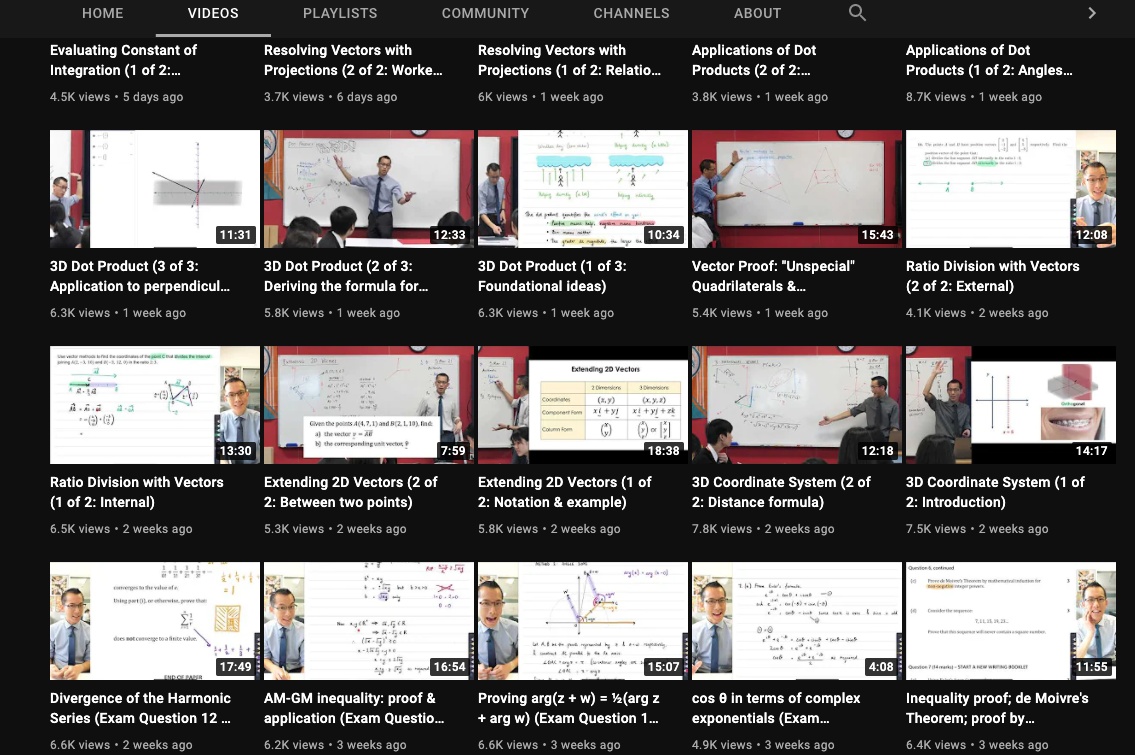
I’ve obviously left out some worthy channels in this rundown, such as Numberphile. It simply means I’ll have to watch more and find another five to write home about. So who do you think are the most influential mathematicians in history? Euclid, Archimedes, Brahmagupta, Al-Khwarizmi, Fibonacci, Euler?
If you haven’t read it already, I’ve also reviewed Five great YouTube science channels.
